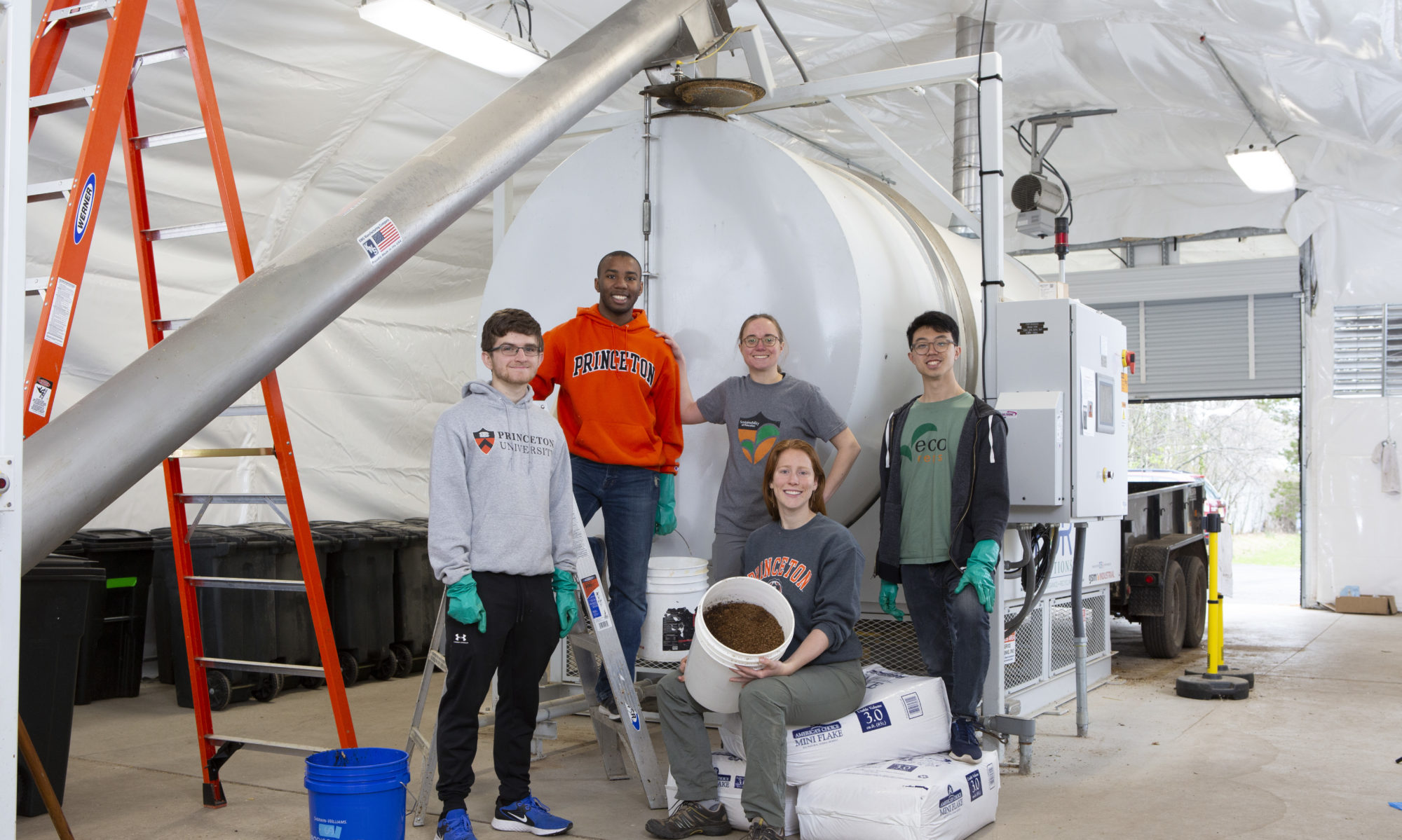Professor Zhiyong (Jason) Ren is a Professor in the Civil and Environmental Engineering Department and is the Acting & Associate Director for Research at the Andlinger Center for Energy and the Environment. I had the pleasure of being his student in the Fall of 2019 in his class Resource Recovery for a Circular Economy. He recently started a project with Professor Anu Ramaswami on developing new methods and technologies to manage food waste in our society. In this interview, I ask him what this project is and how it relates to the circular economy, the S.C.R.A.P. Lab and environmental justice.

Q: How does the work that you are doing relate to the circular economy?
A: My research is very much related to it. When you talk about the circular economy you talk about the 3 R’s: recycle, reuse, and reduce. I am more on the reuse side because we are trying to improve the values of the waste and convert it into a value-added product. Not to mention that in this project we try to actually make better value-added products out of traditionally low-price products. This has been a challenge in waste valorization. If you actually can make profits using technology made of waste material that makes economic sense then that makes the technology more applicable in the real world.
Q: Can you describe the work you are during with Professor Ramaswami?
A: Professor Ramaswami and I along with other professors in other universities have been issued an INFEWS (Innovations at the Nexus of Food, Energy, and Water Systems) award from the USDA. My part of the work is looking into the technological advancements of treating food waste generated from different places and developing technologies to convert food waste to make better products. Especially if there is any possibility to produce biogas which is a cheap energy source. We’re also looking at the possibility of biochar which can enhance the anaerobic treatment process to produce energy, water, and fertilizer from food waste and hopefully then go back and actually put these resources back into community gardens. So it is a closed loop utilization of food. That’s my side of the project and we’ll work with Professor Ramaswami’s group analyzing the benefits and challenges of different technologies by using life cycle assessments and economic analysis tools to understand the system.
Q: Why do we want to develop new methods of managing our food waste?
A: Because it’s a problem, that’s for one. Food waste certainly occupies a lot of landfills, and we should not have a lot of food waste anyways because we do not want to waste a lot of food. Secondly, if we have to generate food waste we have to give it a better use. You don’t want to just throw it away and leave it rotting somewhere like a landfill which causes different issues. It would be better utilized for beneficial use which is basically the principle of a circular economy.
Q: How does the S.C.R.A.P. Lab fit into your project?
A: The campus composter and facility is a very important demonstration tool to campus as an educational tool and also is a good approach to convert campus food waste into something valuable. It is certainly a good example of waste valorization. On the research side, this approach compliments what we do because the technology developed in my lab is not at the scale of commercial application yet. The S.C.R.A.P. Lab serves as a benchmark to which alternative waste valorization technologies like producing protein out of food waste may be compared against. Other things can actually be in collaboration with the compost facility. It is a very important facility for our community.
Q: How would our current system for handling food waste contribute to environmental injustice? And how does your project seek environmental justice?
A: Currently a lot of food waste goes to landfill so you see how unpleasant those places are and certainly everyone has a notion of “Not in my Backyard” (NIMBY), don’t build a landfill in my backyard. I would assume most of these landfills would be closer to land and neighborhoods that are lower income and are disproportionately disadvantaged communities. So you would help to reduce those types of construction and reduce the impact on some of these communities. And from the economic side you could develop technologies to make waste a valued product that creates a lot of job opportunities and businesses within the waste management industry. As a result, waste companies can use these technologies which will create circular economy jobs that pay better and generate revenue products itself which will be economically beneficial as well.
